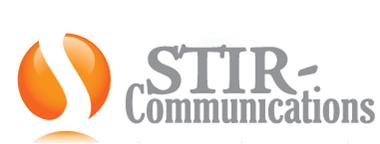A CEO contacted us expressing his need for a Mission Statement in order for employees, partners and investors to better understand his business direction.
INSIDE YOUR BRAND:
Every brand is a fictional entity. The strongest brands are those with the most attractive personalities.
What is the personality of your brand? What does it look like? What does it sound like? How does your brand think, act, and see the world? Remember, everything communicates.
INSIDE YOUR COMPANY:
A company is another type of fictional entity.
The personality of your company is spread across its employees -- representatives who are supposed to think, act, and see the world according to the principles your company was built upon. That culture is not born from the written word but from the sweat of actions.
Your Mission Statement is not your style guide. Mission Statements are amorphous dollops of wishful thinking, high hopes committed to paper. Forgive me, but the average Mission Statement is packed with overbearing cliches . Every time I read one I’m reminded of those young women in beauty pageants who provocate dreams of world peace. In short, most Mission Statements are no more meaningfully rooted than a child claiming to be a "blank" when they grow up.
It takes more than a Mission Statement to bring about world peace and it will take more than a Mission Statement to unify your employees or those looking to invest.
HOW TO APPLY THIS WISDOM:
- Identify the Unifying Principles of your company.
- Write them down.
- Make them real through your words and actions.
Unifying Principles are not core values. They provide more guidance than core values.
Unifying Principles are not rules. They provide more freedom than rules.
Unifying Principles are specific statements that reflect a belief system. Not a mission to attain but acts that are deep rooted, underway and unwavering.
Unifying Principles bring people into unity and form the basis for coordinated action.
Honesty is a core value.
- Do not steal is a mission.
- Love your neighbor as yourself is a Unifying Principle.
- Allow second helpings is a mission.
- Provide enough that an abundance remains when everyone has had all they want is a Unifying Principle.
Principles, not rules nor missions, determine how we think, act, and see the world. When employees embrace the principles upon which your company is built, you can trust them to make the right decisions.
Do you live your live by Unifying Principles and can you articulate them? Give it some thought and next time present all who matters your Unifying Principles statement.
Greg
Gregory Salsburg
CEO/The Big STIR
STIR-Communications
Miami | New York | London
c: (561) 386-8064
o: (305) 407-1723
e: Greg@STIR-Communications.com




